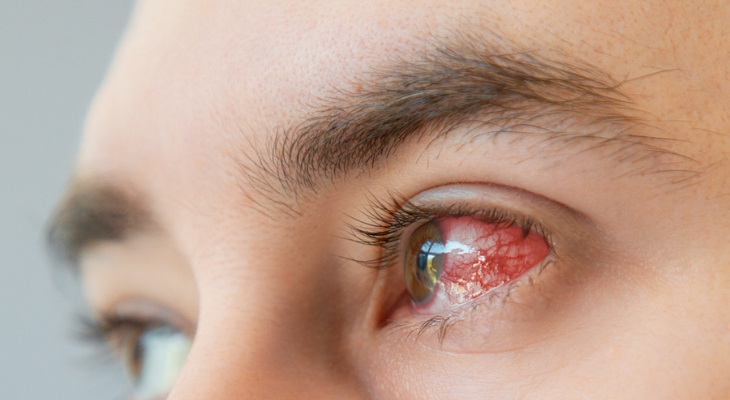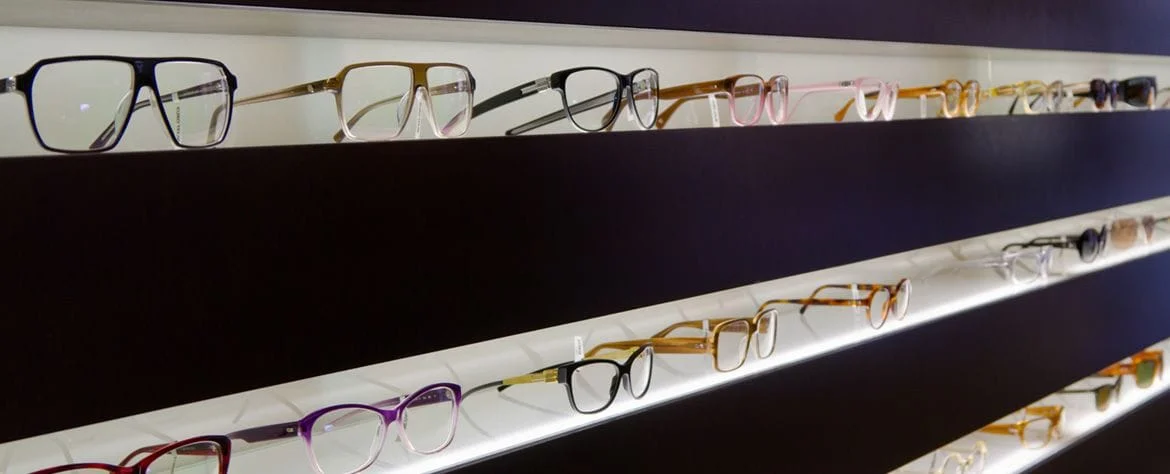
Scratched Your Cornea? See Your Eye Doctor Right Away!
A tiny scratch on your cornea could cause a serious eye infection without prompt treatment from your eye doctor. Known as "corneal abrasions," these scratches affect the clear, rounded tissue that covers your iris and pupil.
Corneal Abrasion Causes and Symptoms
A corneal abrasion usually happens when something rubs against your eye, scratching the outermost layer of cells in the cornea. Corneal abrasions can be due to:
- A Torn Contact Lens
- A Speck of Dirt or Other Foreign Body Under a Contact Lens
- A Scratch from Your Fingernails or a Makeup Brush
- Sand, Dirt or Other Debris in Your Eye
- A Sports Injury (Another player's fingers or a stick or stone on the ground could scratch your cornea.)
Corneal abrasions are very painful, even if the scratch is small. In addition to pain, you might notice some of these symptoms:
- Sensitivity to Light
- Trouble Opening Your Eye
- A Feeling That Something Is Stuck in Your Eye
- Watery Eye
- Blurred Vision
- Red Eye
Treating a Corneal Abrasion
If you have any of these symptoms, call your optometrist as soon as possible. Delaying treatment could increase your risk of an infection that could temporarily or permanently affect your vision. Your optometrist will prescribe antibiotic drops or ointment that will kill germs and prevent infection. Over-the-counter or prescription pain medication will help ease your pain.
Fortunately, corneal abrasions usually heal within a few days. Your optometrist will probably schedule a follow-up appointment within a day or two of your injury to make sure that the abrasion is getting better. During the appointment, he or she will check your cornea to make sure it's healing as it should.
If the abrasion becomes infected, you may develop an ulcer, or sore, on your cornea. Infected corneal ulcers are also treated with antibiotic drops, in addition to antibiotics (or antiviral or antifungal) drops.
If your eye doesn't start to feel better in a few days or gets worse again after you've seen your eye doctor for your follow-up appointment, let your optometrist know. Since corneal ulcers can scar your cornea and permanently damage your vision, it's important to begin treatment as soon as possible.
How to Reduce Your Risk of a Corneal Abrasion and Eye Infection
Avoiding a corneal abrasion can be as simple as:
- Examining Your Contact Lenses Before Wearing. Throw away any lenses that are torn or have ragged edges.
- Following Wear Suggestions. Don't sleep in your contact lenses or wear them while swimming or showering.
- Cleaning Contact Lenses Thoroughly. Follow your optometrist's cleaning recommendations and only use products intended to clean contact lenses. Don't clean or re-wet lenses by placing them in your mouth. Be sure to wash your hands before touching your eyes or contact lenses.
- Wearing Eye Protection. Wear goggles or safety glasses when you use machinery or power tools, whether you're at work or around your home. It's also important to wear eye protection when working with chemicals.
- Avoiding Rubbing Your Eyes. It's only natural to want to rub your eyes if they feel uncomfortable. Unfortunately, rubbing can cause a scratch on your cornea if dirt, dust or another foreign object is trapped under your eyelid. Flooding your eye with saline solution or artificial tears could help flush out the object. If you can't remove it easily, call your eye doctor.
Worried about an eye injury or blurry vision? No matter what your vision problem, we're here to help you protect your eyesight. Give us a call to schedule your appointment with the eye doctor.
Sources:
NCBI: National Library of Medicine: Corneal Abrasion, 7/12/2022
American College of Ophthalmology: Corneal Abrasion and Erosion, 9/26/2022
https://www.aao.org/eye-health/diseases/what-is-corneal-abrasion
American Optometric Association: Corneal Abrasion
https://www.aoa.org/healthy-eyes/eye-and-vision-conditions/corneal-abrasion?sso=y
American Academy of Ophthalmology: What Is a Corneal Ulcer (Keratitis)?, 10/13/2022
https://www.aao.org/eye-health/diseases/corneal-ulcer
Prevent Blindness: Keratitis

